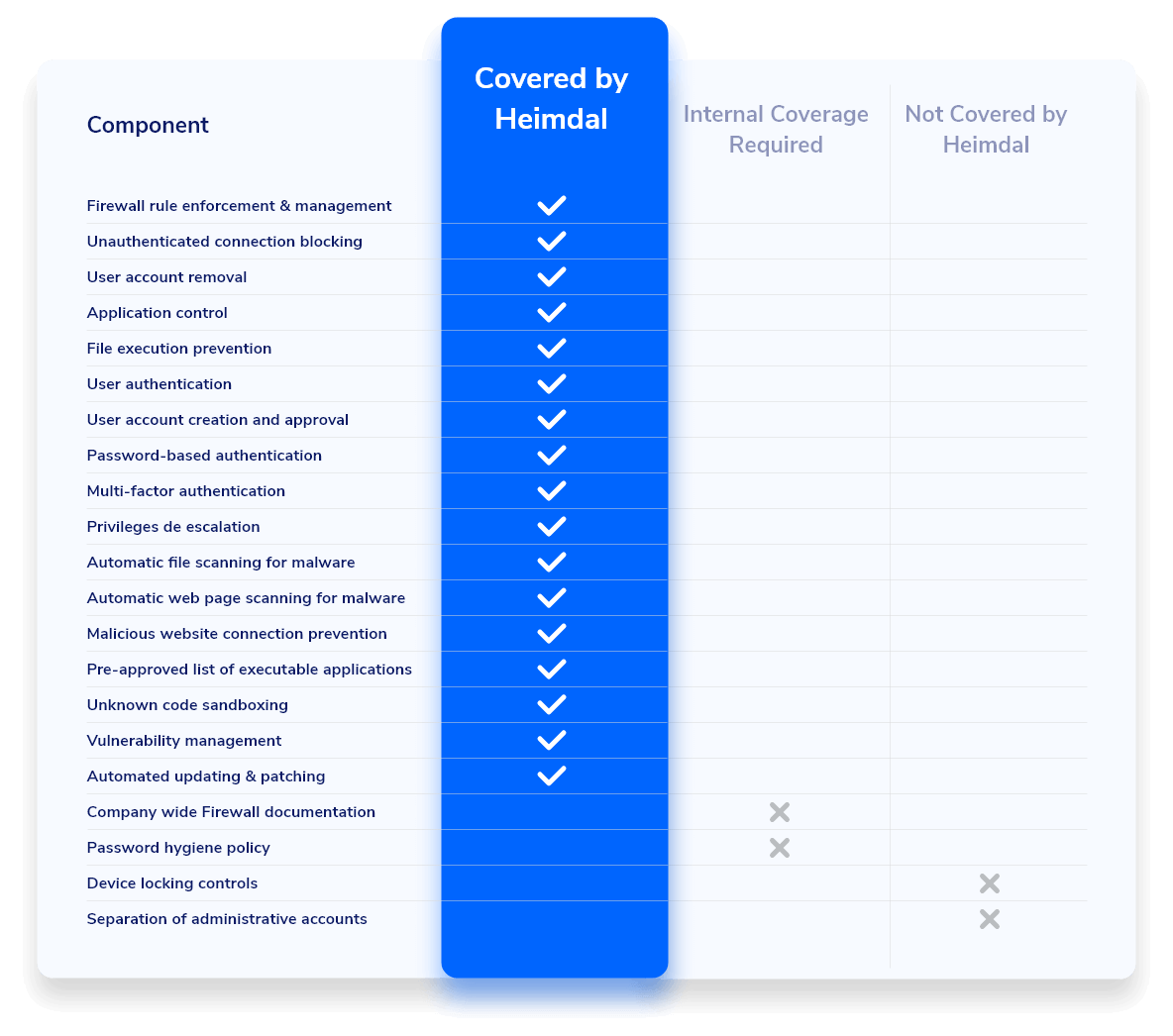Contents:
The United Kingdom’s public sector is undergoing a digital transformation, relying increasingly on technology to enhance service delivery, streamline operations, and foster improved engagement with citizens. As government organizations continue to embrace technological advancements, they also face a growing array of cyber threats that pose significant risks to their operations and the security of sensitive information. To address these challenges effectively, the implementation of Cyber Essentials in the public sector has become an essential component of safeguarding critical infrastructure, protecting citizen data, and maintaining public trust.
Understanding Cyber Essentials
Cyber Essentials is a practical, government-backed scheme that assists UK-based organizations, regardless of size, in protecting themselves against a wide range of common cyber-attacks. It is applicable not only to the UK’s most critical organizations but also to the wider public sector, industry, SMEs, and the general public. The scheme provides a set of fundamental security controls that organizations must implement, serving as a strong foundation for cybersecurity.
The Five Pillars of Cyber Essentials
- Boundary Firewalls and Internet Gateways: The first pillar emphasizes securing an organization’s network perimeter with firewalls and gateways to control traffic and prevent unauthorized access.
- Secure Configuration: This pillar focuses on implementing secure configurations for devices and software to reduce potential vulnerabilities.
- Access Control: Effective access control measures are critical in managing user privileges to prevent unauthorized access to sensitive systems and data.
- Malware Protection: Protecting against malware threats with robust antivirus and anti-malware solutions ensures data integrity and confidentiality.
- Patch Management: Regularly updating and patching software addresses known vulnerabilities, reducing the risk of exploitation by cybercriminals.
Benefits of Cyber Essentials Compliance
The Cyber Essentials certification offers several advantages for organizations, such as:
- Demonstrating Proactive Cybersecurity: Cyber Essentials certification indicates that an organization is proactive in safeguarding against malicious actors, as well as building trust among stakeholders.
- Attracting New Business: Cyber Essentials compliance can attract new business opportunities by assuring clients and partners of robust cybersecurity measures.
- Gaining Clarity on Cybersecurity Level: The certification provides a clear understanding of an organization’s cybersecurity posture, helping identify areas for improvement.
- Enabling Participation in Government Contracts: Some government contracts require Cyber Essentials certification, making it a prerequisite for securing these opportunities.
The Cyber Essentials Certificates
Cyber Essentials
The foundation-level certification provides a statement of the fundamental controls an organization should have to mitigate the risk of common cyber threats. It demonstrates to customers, investors, insurers, and others that an organization has taken the necessary security precautions to protect against most common cyber-attacks.
Cyber Essentials Plus
The highest level of certification under the Cyber Essentials scheme involves a more rigorous test of an organization’s cybersecurity systems. Additionally, cybersecurity experts perform vulnerability tests to ensure protection against hacking and phishing attacks.
Importance of Cyber Essentials in the Public Sector
Safeguarding Sensitive Information
The public sector often deals with sensitive citizen data, including personal, financial, and health information. Implementing Cyber Essentials ensures that this data is adequately protected, mitigating the risk of data breaches and identity theft.
Enhancing Public Trust
Trust is a cornerstone of the relationship between government institutions and citizens. By obtaining Cyber Essentials certification, the public sector demonstrates its commitment to cybersecurity best practices, assuring the public that their information is in safe hands.
Strengthening National Security
Government agencies play a vital role in national security, and they can be prime targets for cyber-attacks from hostile entities. Adhering to Cyber Essentials guidelines helps build a robust cybersecurity defense, protecting critical infrastructure and classified information.
Cost-Effective Security Measures
Cyber Essentials provides a cost-effective approach to cybersecurity. By focusing on fundamental security controls, organizations can implement strong protection measures without incurring excessive costs.
Compliance and Regulation
As we already mentioned, Cyber Essentials certification can often be a prerequisite for participating in government contracts and procurement processes. Complying with these standards ensures that the public sector remains aligned with the latest regulations and industry best practices.
Promoting Cybersecurity Awareness
The process of achieving Cyber Essentials certification fosters a culture of cybersecurity awareness within the organization. Employees become more vigilant about potential threats and better equipped to identify and respond to cyber-attacks.
Coverage of Cyber Essentials Compliance Scheme
The Cyber Essentials scheme addresses essential cybersecurity areas, including:
- Firewalls: Providing basic protection by establishing a barrier between an organization’s IT network and external networks to control incoming traffic.
- Secure Configuration: Implementing security measures during the construction and installation of systems to minimize vulnerabilities.
- User Access Control: Protecting user accounts and preventing privileged account misuse to ensure the least privilege principle.
- Malware Protection: Limiting the execution of known malware and untrusted software to prevent malicious code from causing damage.
- Patch Management: Keeping software up to date and resistant to cyber-attacks by promptly applying patches and updates.
How Heimdal® Facilitates Cyber Essentials Compliance
Heimdal offers comprehensive cybersecurity solutions to assist UK-based public sector organizations in achieving and maintaining Cyber Essentials compliance effectively.
Our four-layer Next-Gen Endpoint Antivirus efficiently detects sophisticated online threats, including ransomware, hidden backdoors, rootkits, brute-force attacks, and undetectable malware, ensuring robust protection against evolving risks.
Furthermore, Heimdal provides the most powerful Patch & Asset Management software, enabling seamless deployment and patching for Microsoft and Linux operating systems, third-party, and proprietary software, anywhere in the world, and according to your preferred schedule.

Heimdal® Patch & Asset Management Software
- Schedule updates at your convenience;
- See any software assets in inventory;
- Global deployment and LAN P2P;
- And much more than we can fit in here...
Conclusion
In an era of rapid digital transformation, the implementation of Cyber Essentials is indispensable for the UK public sector to safeguard critical infrastructure, protect sensitive data, and maintain public trust. By adhering to the Cyber Essentials scheme, government organizations can demonstrate their commitment to proactive cybersecurity and create a secure environment for citizens and stakeholders alike.
With comprehensive cybersecurity solutions from Heimdal, achieving and maintaining Cyber Essentials compliance becomes an attainable and efficient process, empowering the public sector to navigate the ever-evolving cyber threat landscape with confidence.
If you liked this article, follow us on LinkedIn, Twitter, Facebook, and YouTube, for more cybersecurity news and topics.










 Network Security
Network Security
 Vulnerability Management
Vulnerability Management
 Privileged Access Management
Privileged Access Management  Endpoint Security
Endpoint Security
 Threat Hunting
Threat Hunting
 Unified Endpoint Management
Unified Endpoint Management
 Email & Collaboration Security
Email & Collaboration Security








